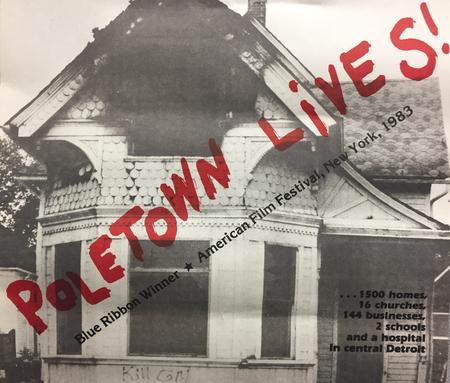Want One of FCA’s 5,000 Promised Jobs? Get in Line
The city has a concerted effort underway to give more than 10,000 Detroiters a fighting chance at the jobs, but seekers will still have to jump through hoops and compete with union workers to get them.

Detroit is getting its first new auto assembly plant in nearly 30 years as Fiat Chrysler Automobiles updates a current plant and builds a new one on Detroit’s east side.
The State of Michigan and the City of Detroit cobbled together more than $290 million in incentives for the Detroit part of a $4.5 billion project. Fiat Chrysler is promising nearly 5,000 positions will open up in the city as part of the deal.
The wages — which start at $17 per hour for line-workers and can go up to as high as $29.94 per hour, and even higher for skilled trades — make these FCA jobs competitive, said Detroit Mayor Mike Duggan.
“They tell us on average they hire one in six people who come through the door,” said Duggan.
The city has a concerted effort underway to ready Detroiters for the jobs, but interested applicants will have to work their way through the process for a chance at them.
Click on the player above to WDET’s Laura Herberg attend Detroit’s training sessions for FCA job seekers.

First in line
Back in May, job seekers filtered into a skilled trade task force meeting on the city’s east side. Detroit officials host these meetings monthly but this one happened to be right after the city finalized its deal with Fiat Chrysler.
Nicole Sherard-Freeman, who was with Detroit Employment Solutions Corps at the time (she’s since been promoted to Executive Director for Workforce Development), told job seekers there that if they wanted to apply for a position at the new FCA plant, they had to first sign up on the city’s employment website, Detroit At Work.
“I don’t think FCA has ever worked with a partner in another state or city that’s doing the degree of prep that Detroit at Work is doing. And we’ve never partnered with a company as large as FCA to get you ready in the way we’re going to get you ready here shortly,” said Sherard-Freeman.
“I’m a single father to three children. So, it would mean a lot to me to have that stability for my household.” — Derrick Parker, job seeker
The head of talent acquisition for Fiat Chrysler, Mike Lackaye, told the audience that Detroiters will be prioritized during the first month of the application process, which the company could begin as early as the end of August.
“Think about the hiring process like getting in line,” said Lackaye. “And if you get in the line first, you get hired first.”
The first two weeks that the jobs will be open for the general public the positions will only be available to people living near the plant in zip-codes 48213, 48214 and 48215. This was negotiated by a Neighborhood Advisory Committee as part of the community benefits process that is required by a city ordinance for developments that are receiving economic incentives and cost $75 million or more.
FCA says the third and fourth weeks of hiring members of the general public will only be open to Detroit residents.
Jumping through hoops

In order to “get in line,” applicants have to meet a few requirements: They have to be 18 or older, they have to have a high school diploma or equivalent, and they have to have a federal or state photo ID that proves they are a Detroit resident.
There are other hoops, too. All applicants will have to take a math and mechanical reasoning test online. To help job seekers prepare for the test, the city is requiring them to take a practice exam with free tutoring provided.
The practice tests are taken after an informational session that’s also required by the city. During one of these session in July, a presenter with the city, Raven Scott, warned the audience that Fiat Chrysler will drug test them.
“So we want you to be able to pass a drug test,” Scott said. “And it’s not just marijuana. It is any other drug that you know you should not be using. If that is your speed, don’t do it. Get it out of your system as soon as possible, OK?”
All of the applicants were given a drug-free pledge on a rectangular piece of tag board. Above a box for a signature it says “I am applying for a job in an industry that does not tolerate drug usage, including marijuana (medical and recreational). I certify that I am drug free and/or will be at the time of my official drug screening.”

At one presentation, a facilitator said that even prescribed opioids would cause an applicant to fail FCA’s drug test.
A lot of other jobseekers already working in manufacturing said they want jobs at the new plant because they’d be closer to home or they’d earn a better pay.
Wages for full-time line workers at FCA currently start at $17.00 per hour and can go up to as high as $29.94 per hour. Temporary employees start at $15.78 per hour and can make as much to $19.20 per hour. FCA is also hiring qualified electricians, pipefitters, millwrights and other skilled trades laborers, which are expected to earn $34.72 per hour.
Job seeker Derrick Parker said he doesn’t mind the hoops, because he really wants one of these jobs.
“I’m a single father to three children. So, it would mean a lot to me to have that stability for my household,” said Parker. He said he was working part time as a valet before he took the summer off.
Detroiter Nicole Williams said working for Fiat Chrysler would mean more than just a paycheck for her.
“I’d be employed again. Back into the workforce,” said Williams. She said she’d been out on disability for seven years but thinks she could handle the position if hired.
“Detroit taxpayers forked over $324 million in exchange for jobs for Detroiters that didn’t materialize, housing that doesn’t exist, and the remediation of blight caused by the billionaire family itself.” — Detroit Free Press columnist Nancy Kaffer on the District Detroit
Promises made
What’s going to make the jobs even more competitive, though, is that laid-off and currently employed temporary United Auto Workers are to get hired before Detroiters. Union members get first claim at new auto manufacturing jobs according to their current contracts — which expire on September 15th. Future UAW contracts with Fiat Chrysler, GM and Ford are currently being negotiated. Neither Fiat Chrysler or the UAW would say at this point how many of the 5,000 jobs promised for the expansion project may get filled by union workers over Detroiters.
But Duggan said non-union residents shouldn’t worry.
“This contract is true for the next 30 years, as long as that plant runs. So we aren’t going to stop doing this in 2020, in 2022, 2024 or 2026. We’re going to continually have lists,” said the mayor.
While the city may continue to groom applicants by requiring them to take practice tests and sign drug-free pledges, it can’t guarantee that these jobs will remain or that the plant will stay open. Those decisions are up to Fiat Chrysler. And private companies haven’t always done what’s in the city’s best interest, even after being given incentives.

Recently, there was the case of Little Caesars Arena and the Illitch family’s plan for the District Detroit. Detroit Free Press Columnist Nancy Kaffer summed up what happened there:
“Detroit taxpayers forked over $324 million in tax dollars meant in part to fund Detroit’s struggling schools to a family that routinely appears on the Forbes 400 in exchange for jobs for Detroiters that didn’t materialize, housing that doesn’t exist, and the remediation of blight caused by the billionaire family itself.”
But these kinds of deals in Detroit go back even further. In the 1980s, General Motors got the city of Detroit to bulldoze the Poletown neighborhood so it could build a plant. Former Green Party presidential candidate Ralph Nader spoke out against the idea in the Poletown Lives documentary.
“They’re using the city of Detroit and the federal government to bulldoze the area, remove the people in the area and subsidize them for the privilege of making a profit,” said Nader in the 1980s documentary. “That’s not capitalism. That’s corporate socialism.”
Despite protests from community members, the City successfully utilized eminent domain to seize and destroy homes to hand over land to GM so it could build the plant. Last November, GM announced plans to close the factory after more than 30 years of operation.
Laura Herberg’s reporting was produced in partnership with the Race and Justice Reporting Initiative at the Detroit Equity Action Lab, a program of the Damon J. Keith Center for Civil Rights. The initiative is funded by the Knight Foundation, Ford Foundation and Community Foundations for Southeast Michigan.
